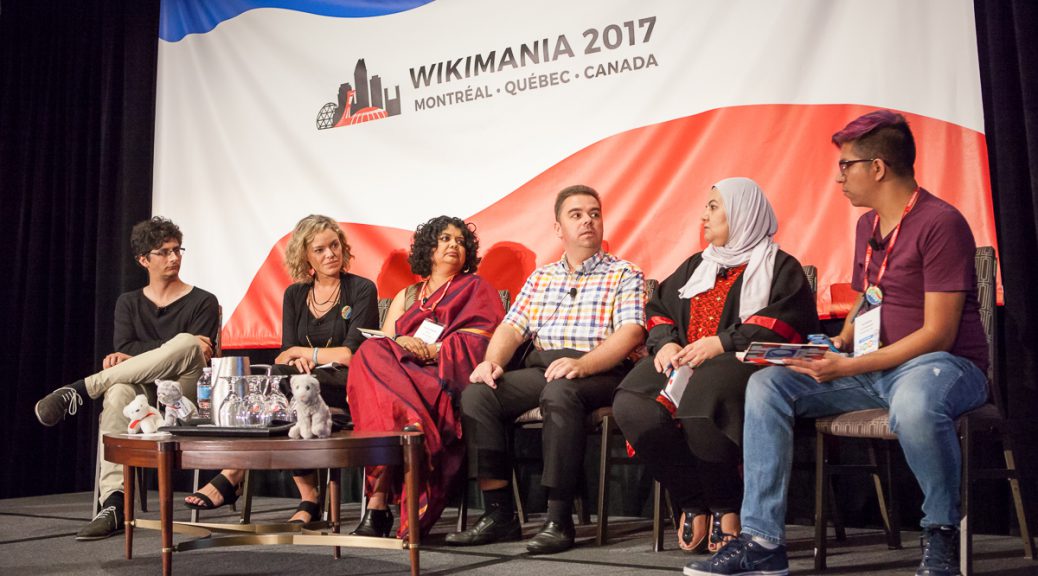[Image: Wikimania panelists discuss movement strategy during the Wikimedia 2030 keynote.]
Last week Ziggy and I traveled to Montreal to attend Wikimania 2017, the 13th annual international conference for editors and users of Wikipedia and related Wikmedia projects. My trip expenses were funded by the Shuttleworth Foundation via Whose Knowledge?, a campaign to improve the representation of marginalized people on the Internet. It was great to connect in person with more members of this group.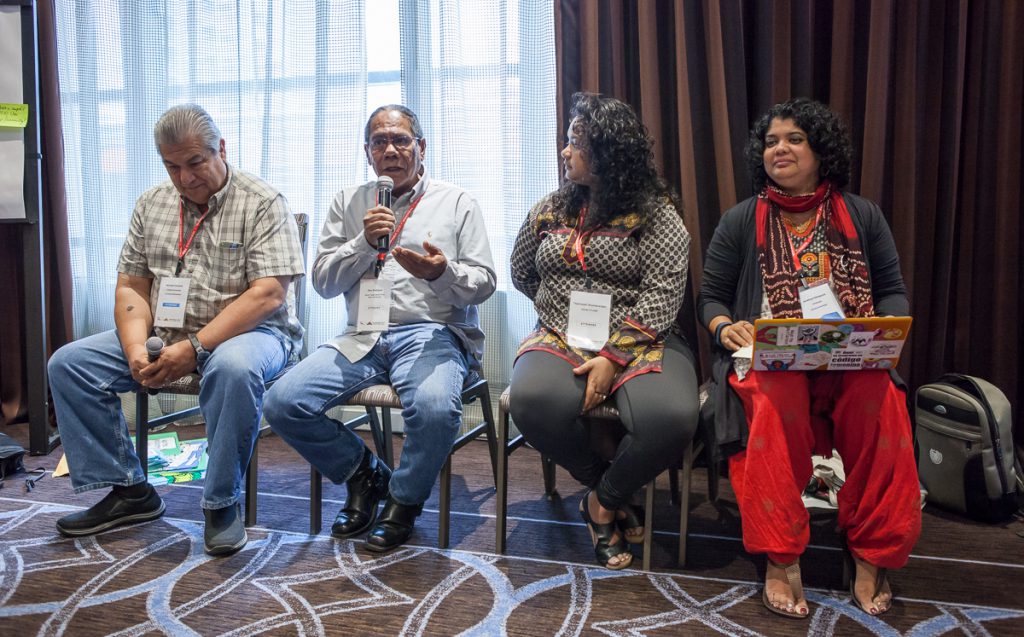 [Image: A panel of Whose Knowledge? members at Wikimania: Michael Connolly Miskwish, Stan Rodriguez, Thenmozhi Soundararajan, and Anasuya Sengupta.]
[Image: A panel of Whose Knowledge? members at Wikimania: Michael Connolly Miskwish, Stan Rodriguez, Thenmozhi Soundararajan, and Anasuya Sengupta.]
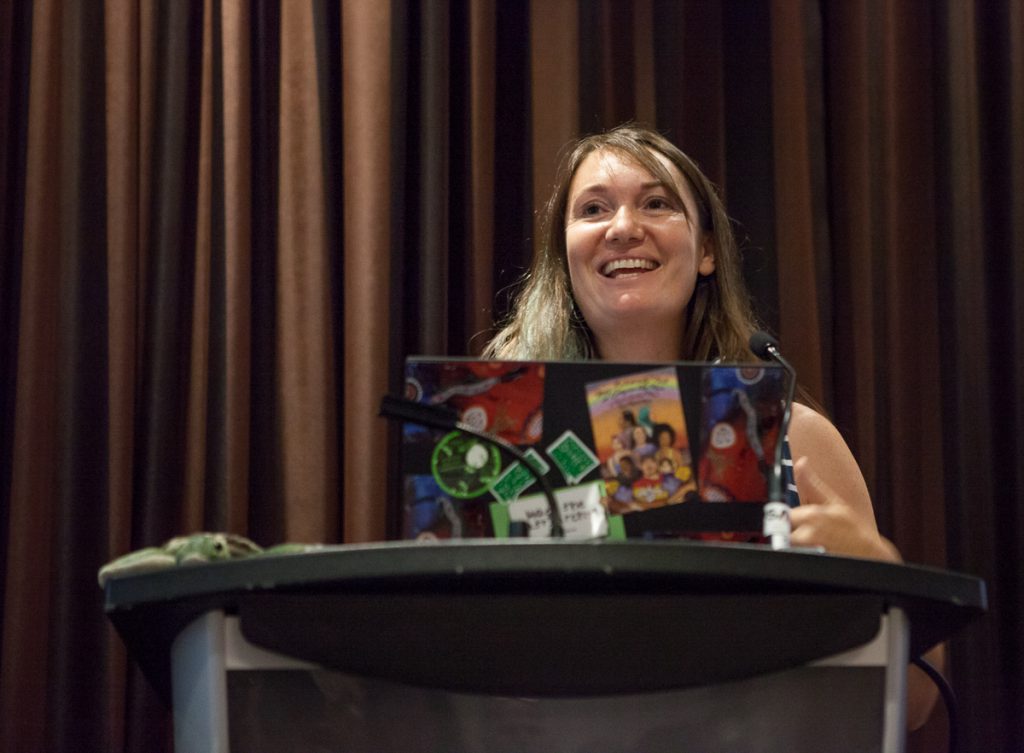 [Image: Siko Bouterse presents on the Whose Knowledge panel.]
[Image: Siko Bouterse presents on the Whose Knowledge panel.]
Sadly, a fair number of people were denied visas by Canada for this event, and this included several Whose Knowledge members. One of them, Azra Causevic, joined the presentation by live video link.
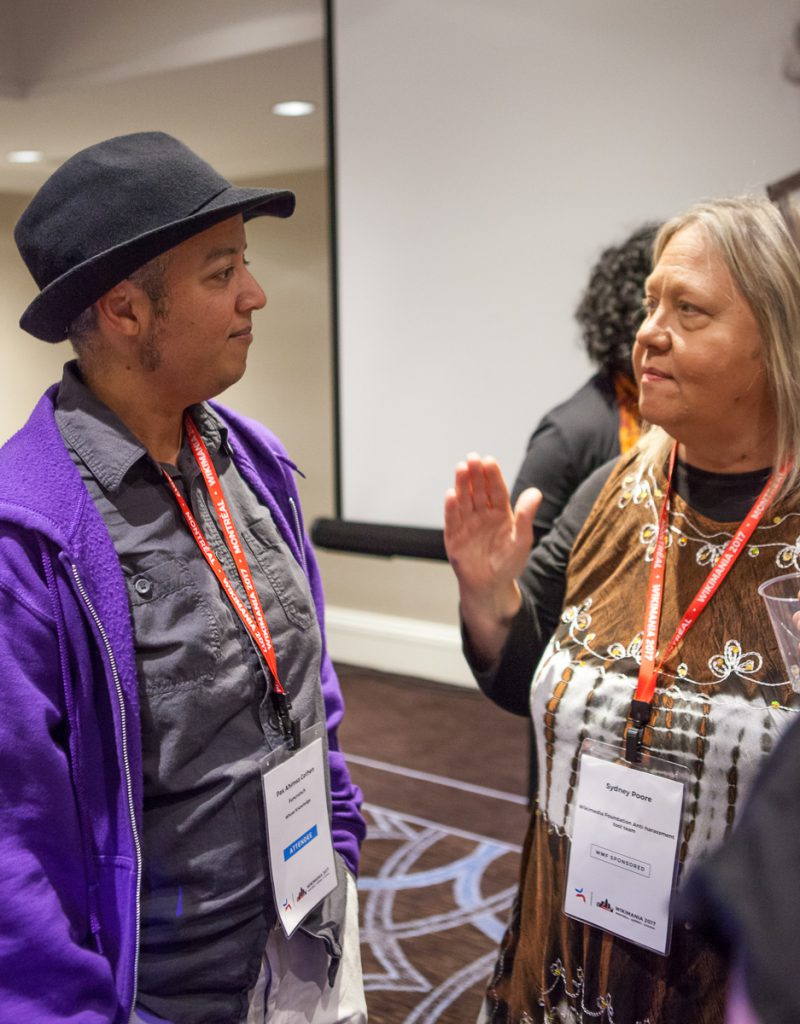 [Image: Pax speaks with Community Advocate Sydney Poore following Pax’s presentation on harassment. Photo by Ziggy.]
[Image: Pax speaks with Community Advocate Sydney Poore following Pax’s presentation on harassment. Photo by Ziggy.]
I gave a talk during the WikiConference North America pre-conference to the main Wikimania event. As I blogged about previously, my presentation, Facing Defacement, described my efforts to combat harassment of users on the English Wikipedia. The talk was well-received, and I connected with several members of the Wikimedia Foundation anti-harassment team, who I hope to work with in the future.
Aside from my presentation, my proudest moment from the trip was confronting the president of the ACLU, Susan Herman, who gave one of the keynote speeches. As freedom of speech was a major topic of study for me in college, I was right with her up until she started discussing the controversy over the scheduled appearance of Milo Yiannopoulos at UC Berkeley. Herman referred to “echo chambers” and students only wanting to hear from people who thought just like they did.
As I’ve written previously, as a member of multiple marginalized groups, the phrase “echo chamber” causes me great irritation for a number of reasons. For the purpose of brevity in Herman’s Q/A session (which was already running overtime), I said that speaking as a black trans person, people like myself have felt targeted and threatened, particularly since the November 2016 presidential election. I argued that a university that championed gender and racial diversity and aimed to provide a place of relative safety for their students should not be obligated to welcome this speaker inside their halls (as opposed to allowing him to speak outside, in the true “public square”). You can watch my response (and her reply) starting at 1:16:43 in the video.
It’s sadly ironic that the Charlottesville “Unite the Right” rally, during which a domestic terrorist (“allegedly”) killed activist Heather Heyer with his car, happened on the same day as this talk. The neo-Nazi apologism from Donald Trump in response to this rally has raised my stress level to the point of physical illness (compounded by the stress associated with the international trip, and the subsequent, unrelated terrorism in Barcelona). There is a difference between supporting free speech and supporting incitement to violence.
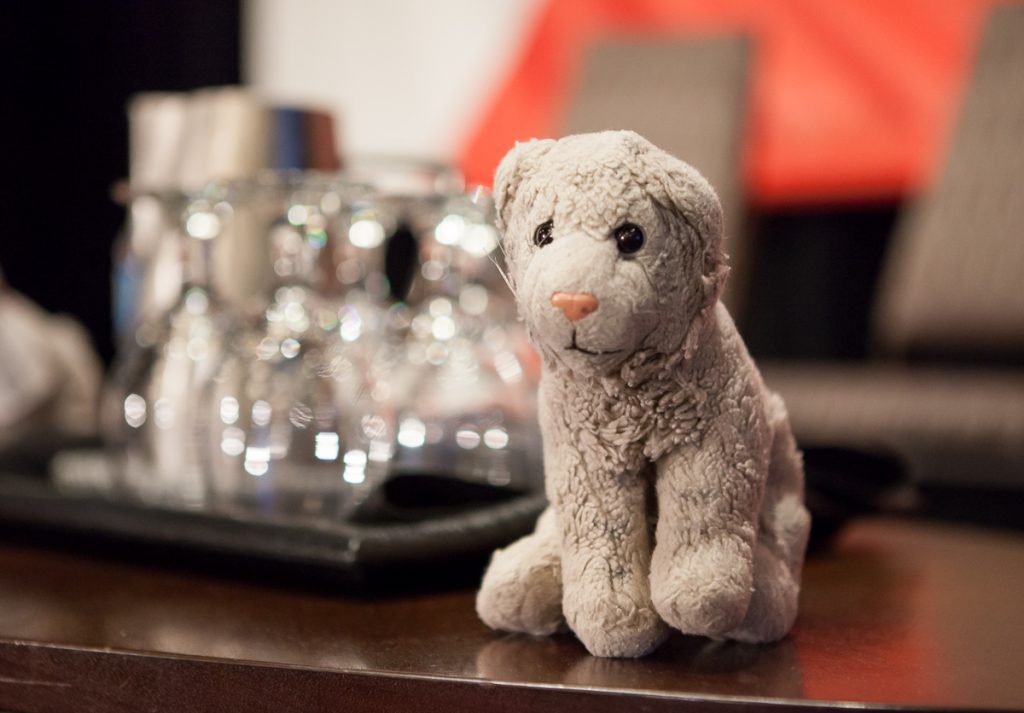 [Image: A representative from the Cuteness Association sits on a table on the main stage.]
[Image: A representative from the Cuteness Association sits on a table on the main stage.]
The trip wasn’t all stressful, however. I enjoyed connecting with people from all over the world and learning useful information, such as how to nominate photos for quality status on Wikimedia Commons. While I felt too worn-down and overwhelmed to explore Montreal beyond a four-block radius of the hotel, Ziggy spent plenty of time out and about in the city. Going through security and customs at both airports also went smoothly, which was a relief. I hope that I will eventually become more comfortable with traveling so that I can attend more conferences like this.
My photos from WikiConference North America and Wikimania are available on Flickr and Wikimedia Commons. Please credit me as Pax Ahimsa Gethen if you use any of them, thanks!
